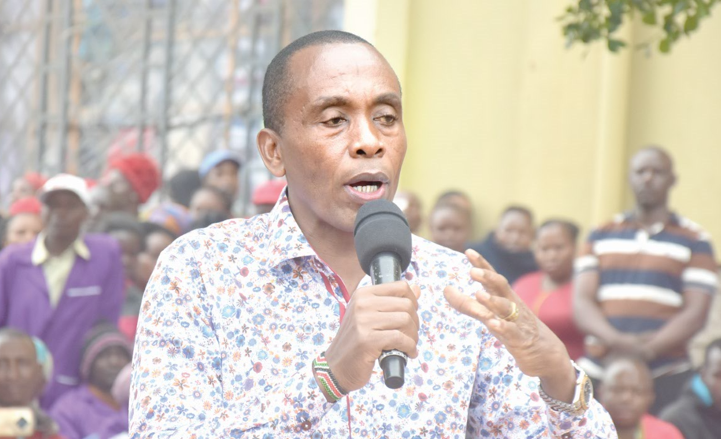Save us from water cartels, Wamatangi tells lawmakers
By Rawlings, August 23, 2023Kiambu Governor Kimani Wamatangi has sought the intervention of the Senate in dealing with rogue water cartels.
This even as the Senate County Public Investment and Special Funds Committee directed the Governor to harmonise the Water Act with the National Water Act 2016 and other relevant laws within four months.
Wamatangi said some rouge water cartels had made it difficult for the county government to merge eight water utility firms to make them more efficient.
“We have tried to merge the water companies so that they are economically viable but there are water cartels that wish that the status quo remains so that they continue making money. This committee should help me get rid of these people,” said Wamatangi.
Limuru, Karuri, Kikuyu and Githunguri water companies have been making losses and operating at a negative working capital.
“You have a water Mungiki in your County. You have people who consume water but do not want to pay. You must kick out those rogue water cartels making your life difficult,” said the committee’s vice chair Tom Ojienda (Kisumu).
The Godfrey Osotsi-led committee noted that Limuru Water, Kikuyu, Githunguri, Karuri water and sanitation companies had been on a loss-making trend and urged the County government to put in place measures for recovery and boost financial health of the water companies within 60 days.
Limuru, Thika, Karuri, Kikuyu, Kiambu, Githunguri, Ruiru-Juja and Gatundu water companies were also found to have exceeded the legal allowable threshold of non-revenue water (NRW) of 25 per cent.
Water loss
The high non-revenue water is contained in the Auditor General’s report for the year ending June 30, 2021. Auditor General Nancy Gathungu, in her report for Limuru Water and Sewerage Company, indicates the firm produced 1,564,362 cubic metres of water in the year under review, out of which, only 1,057,140 cubic metres were billed.
The report states that the NRW was 7.4 percentage points above the allowable water loss threshold of 25 per cent, resulting in loss of an estimated at Sh32.5 million.
The NRW implied that a significant amount of the company’s water is lost before it is billed to customers, or some of its customers obtain the water free of charge,” the report says.
But the firm’s managing director Margaret Maina told the committee that due to the high level of non-revenue water, the company took initiatives to reduce it from 32 per cent to 30 per cent as per the performance contract.
“Reduction of NRW will be achieved through several activities that are geared towards reducing the losses,” she said.
The committee learnt that Thika Water made a loss of Sh221 million in non-revenue water due to theft, non-functioning water metres and leakage.
According to the report, during the year ended 30 June, 2021, the Company produced water totaling to 14,083,006 cubic metres an increase of three per cent from previous year’s production of 13,6870,384 cubic metres.
“However, the company had no organizational policies and strategies in place for managing the levels of non-revenue water of 33 per cent of the total production, leading to approximately Sh221.1 million in lost revenue,” reads the report.
Thika Water and Sewarage Company Managing Director Moses Kinya said they have a Geographical Information System (GIS) that is being used to manage and map assets, such as pipes and valves, to ensure they are in good condition and operating efficiently.
“The Company has a programme to replace non-functional and out-of-order consumer metres and replace them with smart-ready ones. During the period 2020 to 2022, the company had replaced 4,677 metres at a cost of Sh18.7 million,” said the company boss.
